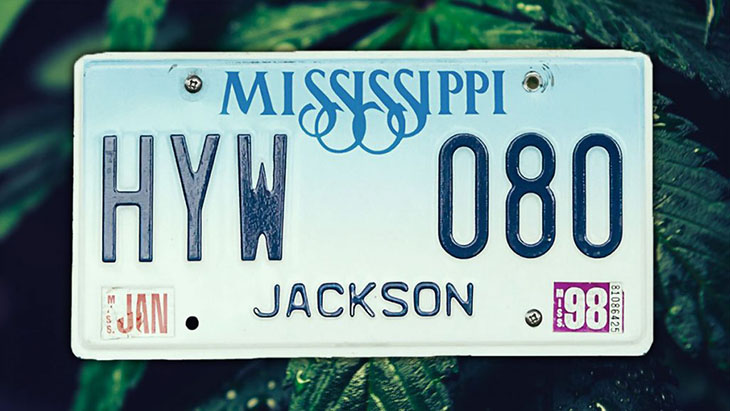
Legislation became law today allowing for qualified patients to obtain medical cannabis products from licensed providers.
Senate Bill 2095: The Mississippi Medical Cannabis Act regulates the production and distribution of cannabis flowers and concentrates to patients with cancer, refractory pain, post-traumatic stress, spinal cord disease, and other qualifying ailments. It is the 37th state to legalize medical cannabis access.
“Marijuana access is long overdue for Mississippi’s patients,” NORML’s State Policies Manager Jax James said. “The overwhelming majority of voters decided in favor of this policy change over a year ago, and for the past 14 months the will of the people has been denied.”
In November 2020, Mississippi voters decided between two separate ballot measures that sought to legalize medical cannabis access – one promoted by local activists and another more restrictive measure placed on the ballot by lawmakers. Seventy-three percent of voters decided in favor of the citizens’ initiative. However, Republican lawmakers later challenged the legitimacy of the state’s voter-initiative process. Members of the Supreme Court ultimately upheld that challenge – a decision that nullified the 2020 vote and also prohibits citizens from placing future measures on the ballot.
Under the new law, state regulators have 60 days following enactment to begin issuing registry ID cards to qualifying patients. Officials are to begin providing licenses to dispensary operations within 150 days.
The Act permits qualified patients to purchase up to 3.5 grams of cannabis flower or up to one gram of cannabis concentrate per day from licensed dispensaries. Patients will be limited to purchasing no more than three ounces of cannabis flower per month. Flower will be capped at 30 percent THC while concentrated products will be capped at 60 percent THC. The measure places no limit on the number of licensed dispensaries that may be operational at any one time. Cannabis purchases will be subject to the state’s seven percent sales tax and an additional five percent excise tax.
While James acknowledged that the new law represents a significant step forward for Mississippi’s patient community, she also expressed concerns regarding several of its provisions and omissions. “We remain concerned that lawmakers saw fit to add unnecessary taxes on cannabis products, that patients are prohibited from home-cultivating limited amounts of cannabis for their own personal use, and that those with chronic pain are restricted from accessing cannabis products until first using more dangerous and addictive substances like opioids,” she said.
Related
Medical Disclaimer:
The information provided in these blog posts is intended for general informational and educational purposes only. It is not a substitute for professional medical advice, diagnosis, or treatment. Always seek the advice of your physician or other qualified healthcare provider with any questions you may have regarding a medical condition. The use of any information provided in these blog posts is solely at your own risk. The authors and the website do not recommend or endorse any specific products, treatments, or procedures mentioned. Reliance on any information in these blog posts is solely at your own discretion.






